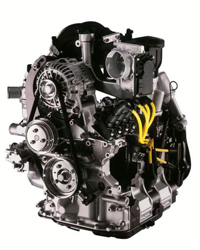C0430 Engine Code Repair
Meaning of C0430 engine trouble code is a kind of chassis trouble code and theoretically you can drive for a few weeks or even months with a broken MAF sensor. You will notice a decrease in gas mileage and over time the car will eventually start stalling a lot. At a shop, the replacement cost is between $240-$400 depending on the car, but that's usually the cost of parts because the labor is relatively simple.
C0430 Fault Symptoms :
- Check engine light comes on
- Engine stalling or misfiring
- Engine performance issues
- Car not starting
If one of these reasons for C0430 code is occuring now you should check C0430 repair processes.
Now don't ask yourself; What should you do with C0430 code ?
The solution is here :
C0430 Possible Solution:

The firing order is an important part of the overall design of the engine and is determined during the design of the engine to eliminate as much engine vibration as possible. If the firing order is changed or adjusted, the ignition from the spark plug is delivered at the wrong time and the engine functions poorly or does not run. The firing order for a particular engine is typically found in the repair manual specific to that model.
C0430 Code Meaning :
C
OBD-II Diagnostic Chassis (C) Trouble Code For Engine
0
Intake Valve Control Solenoid Circuit Low
4
Throttle/Pedal Position Sensor/Switch A Circuit Intermittent
3
Turbocharger Boost Sensor A Circuit Low
0
Reverse Input Circuit
Regarding the C0430 code, it would probably be worthwhile to carefully inspect the wire harness near the intake manifold bracket. This is done most easily from below the car in the area near the oil filter.
C0430 OBD-II Diagnostic Chassis (C) Trouble Code DescriptionC0430 engine trouble code is about Reverse Input Circuit.Main reason For C0430 CodeThe reason of C0430 OBD-II Engine Trouble Code is Throttle/Pedal Position Sensor/Switch A Circuit Intermittent. |
C0430 DTC reports a sensor fault, replacement of the sensor is unlikely to resolve the underlying problem. The fault is most likely to be caused by the systems that the sensor is monitoring, but might even be caused by the wiring to the sensor itself.
